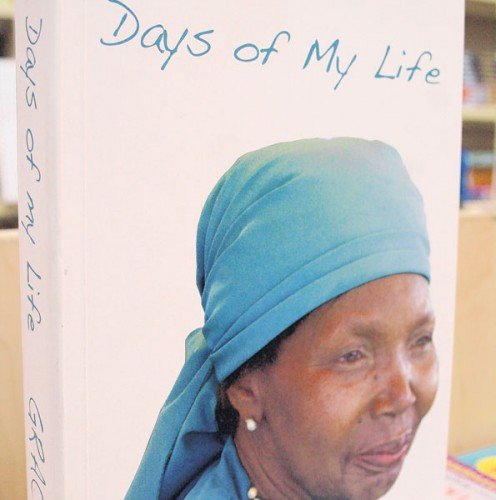Nee Grace Emily Akinyi, Grace Ogot was the first East African woman from Kenya to be published in English. Besides her work as a writer, Ogot was a professional nurse and politician among other things.
Ogot had a rather interesting background for an African woman born in 1930 Kenya. At age nineteen, Grace Ogot was admitted into the Mengo Hospital School of Nursing and Midwifery in Uganda.

After 1953, she travelled to London to put to use her newly acquired training in nursing at the Saint Thomas Hospital for Mothers and Babies. On her return home in 1958, Grace took up different roles as a scriptwriter for BBC, as a Community Development Officer in Kisumu County, and a Public Relations Officer for the East African office of the Air India Corporation.
She co-founded the Writers’ Association of Kenya, after having served as a UN delegate for Kenya in 1975 and subsequently, as a member of the UNESCO delegation in 1976. She later became a Diplomat and one of the first female Members of the Kenyan Parliament and an assistant minister.

In 1962, the writer discovered, after reading her short story A Year of Sacrifice, that she was the only East African woman to present her work at a conference on literature in Makerere; she was motivated to publish her work.
Grace Ogot tells her stories like a sage, like one who came almost wholly made, perfect, and with such derf themes as the rebirth of the African way of life. Subjects such as tradition and modernity feature strongly in her works. To her, the two are co-extensive.
In her debut, The Promised Land, when the husband and head of an immigrant Luo family is cursed with a strange disease inflicted upon him by his neighbour, and the hospitals and white doctors have failed him, he is forced to seek help from an African traditional healer.

Ogot fuses the African tradition into the modern standard of living and explains that “…when the church fails and hospitals fail, these people always slip into something we can trust, something within our own cultural background…”
This is quite surprising as her father was an early convert of the Anglican church where Ogot was baptized, and a teacher at a missionary school. She is a native of Asembo, “a village highly populated by predominantly Christian Lou ethnic group.”
In her book, The Empty Basket, she strikes a balance between femininity and tradition. In this work, Ogot clothes her female characters with profound strength emanating from the mere fact of being African.
As a sharp contrast to her background as a Christian having been baptized and taught core Christian principles at the Na’iya Girls’ School and Bulere High School where she received her elementary and high school education respectively, Grace Ogot tells her stories radically, often with heavy reliance on African realism, magic and human sacrifice as integral parts of the African custom and tradition.
This profound call for favourable change to African traditional systems made it difficult for her to get published in the initial stages of her writing career in pre-independence Kenya. She recounts her work being rejected by publishers because she hadn’t conformed to the existing norm then, and how “they really couldn’t understand how a Christian woman could write such stories involved with sacrifices, traditional medicines and all, instead of writing about salvation and Christianity”.

Grace Ogot, in 1959, got married to the professor historian Bethwell Allan Ogot and had four children. While her storytelling prowess is often attributed to the stories from the Old Testament which her father recounted to her as a child, it is also asserted that her interest in the Lou folklore heightened because of her association with her husband.
Ogot died in March 2015 in Kenya.










